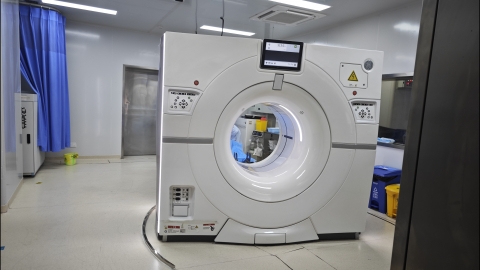Can a head CT scan determine the cause of dizziness?
Generally, a cranial CT scan can help identify the cause of dizziness to some extent. The detailed analysis is as follows:

A cranial CT scan can be used to exclude or diagnose structural brain abnormalities that cause dizziness, such as cerebral hemorrhage, cerebral infarction, brain tumors, etc. These abnormalities may compress or affect brain nerves and blood vessels, leading to dizziness.
However, not all causes of dizziness can be directly detected by cranial CT. Dizziness has multiple causes, including inner ear problems, neurological diseases, circulatory system issues, or other non-disease factors. If the cause is an inner ear disorder, such as benign paroxysmal positional vertigo, Ménière's disease, or vestibular neuritis, cranial CT typically cannot directly detect the abnormality. A comprehensive and accurate diagnosis of the cause of dizziness usually requires a combination of medical history, physical examination, vestibular function tests, and other relevant examinations.
It is recommended to maintain healthy lifestyle habits, including a balanced diet and moderate exercise, which can help strengthen physical condition and reduce the occurrence of diseases.
[1] Sun Rong, Qian Xiaojian. Analysis of the effectiveness of cranial CT angiography combined with whole-brain CT perfusion imaging in the early diagnosis of cerebral infarction [J]. Imaging Research and Medical Applications, 2024, 8(22): 173-175.
[2] Bao Yanming, Zhao Guangming, Song Guangyi. Application of high-resolution CT of the inner ear [J]. Radiology Practice, 2004, (07): 526-528.




